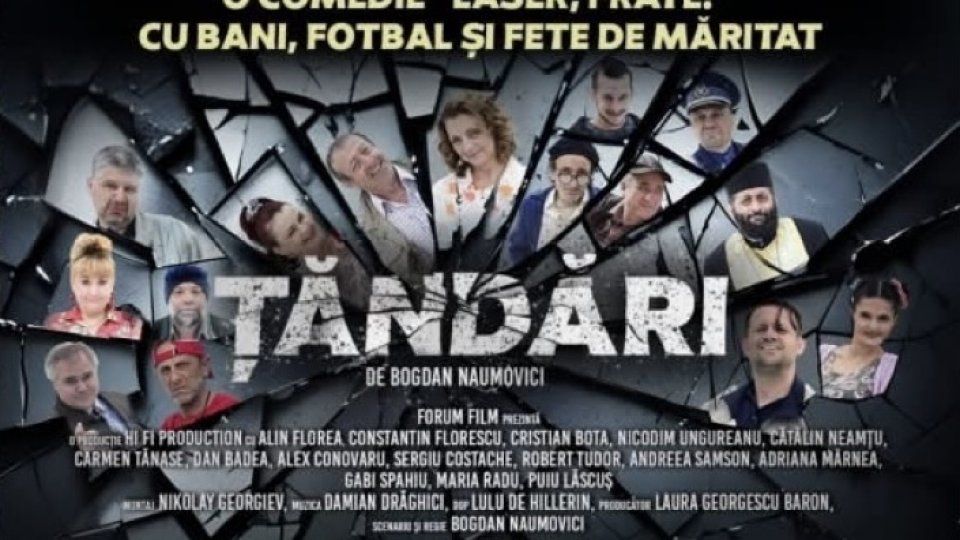The Bucharest International Literature Festival
The 9th edition of the Bucharest International Literature Festival was held between December 7 and 9 in Romania’s capital city. It was a roundup edition, according to organizers, that included two public reading and debates sessions, hosted by the Romanian Peasant Museum and an event dedicated to students and staged jointly with the Department of Communication Sciences with the Bucharest’s Faculty of Letters. At the debut evening of public readings and debates at the Peasant Club on December 8th, literature lovers had the chance to meet prose writers Irina Teodorescu, Veronica D. Niculescu, Lavinia Branişte and Irina Georgescu Groza.

Corina Sabău, 07.01.2017, 20:44
The 9th edition of the Bucharest International Literature Festival was held between December 7 and 9 in Romania’s capital city. It was a roundup edition, according to organizers, that included two public reading and debates sessions, hosted by the Romanian Peasant Museum and an event dedicated to students and staged jointly with the Department of Communication Sciences with the Bucharest’s Faculty of Letters. At the debut evening of public readings and debates at the Peasant Club on December 8th, literature lovers had the chance to meet prose writers Irina Teodorescu, Veronica D. Niculescu, Lavinia Branişte and Irina Georgescu Groza.
Translator and writer Veronica D. Niculescu tells us how she got round to writing Heading towards valleys of jade and darnel ryegrass, a novel brought out by Polirom Publishes in 2016. This is the second volume that Veronica D. Niculescu published in 2016, after Hybernalia, a sequel of Animal Symphony, with both volumes being published by the Casa de Pariuri Literare.
With details on all that, here is Veronica D. Niculescu: ”It is a volume I had been working on for about three years and I can say it all started as a game. It is a story of a girl writing a book. And that character writes a book that is different from the kind of book I would write. I chose this strategy as I have always wanted the book that I write to include the book of a character as well. Now, getting back to the topic of our meeting, I do hope the day comes when one of my books includes poems written by a male character, or by an animal character. Getting back to the story written by the girl, it is a rhyming fairy tale, which, when I completed, I didn’t even know it would be embedded in this volume. And it was only after I finished writing this fairy tale that I realized I wanted the volume to be the story of that girl. And that’s exactly how I sketched my character, starting off from the rhyming fairytale.”
After her poetry debut, she published two short fiction volumes, and a childrens book. Lavinia Braniste, who published Interior Zero for Polirom this year, told us how she came to write fiction: “Ive had a passion for short fiction for a long time now, and I still have it. At first I designed this volume as a short fiction volume as well, but the fragments came to connect to each other more than I imagined in the beginning, and I decided to keep it like that. In short, it is a story that sprang to my mind while I was having an on-line chat with a friend who is a poet, Vasile Leac, who was in Germany, picking leek and pumpkins. I was envious of his exotic experience, and I suspected he would write about it. In fact, the motto of the book comes from this conversation, it relates to a question asked by Vasile Leac: “Arent we supposed to understand life?” The way in which he phrased the question was something I liked, so I decided to write a book about how we dont understand life, because I was myself in a situation where I seemed to be fine, but I was terrified at the idea that that was what fine looks like. And I find it hard to understand if I was supposed to wish for something else or not.”
The novel The Curse of the Moustachioed Robber by Irina Teodorescu won in France the Andre Dubreuil award for a debut novel. The Romanian language edition was published by Polirom this year, translated by Madalina Vatcu: “In France the novel was received very well by the press and the critics. However, we also had reactions from the French readers, which could get lost in the multitude of Romanian names that the readers are not used to. However, these characters could exist anywhere, because it is about a place in Eastern Europe, it is not specified that the action takes place in Romania; the names of the characters are the only clues towards this.”
Irina Georgescu Groza, attending the International Literature Festival in Bucharest, gave a lecture on her debut book, published by Casa de Pariuri Literare, a short fiction book entitled Beyond the Windows. Here she is, talking about getting back to writing: “The need to write returned to me when I lived for a time in Belgium with my family. It could also have been because I didnt have friends and had lots of time, and didnt feel attracted by work. Previously I had gotten to the point where I was writing even at work, Romanian language literature, and I think my Flemish boss thought those long e-mails were part of my work for the corporation. At some point, when I got back to Romania, I decided it was time to do what I liked doing, meaning writing. I found a great creative writing course held by the Short Story Magazine, a short fiction course. I started to love fiction, even though I had written two novels, I met writers I knew, I read a lot, and started writing short fiction. I forgot about economic growth, which weighed heavily on my mind when I was working at the corporation in Belgium.”
The open readings from the books recently published by the above-mentioned writers were followed on the first evening of the International Literature Festival in Bucharest by a debate with the topic “About feminine writing: is there feminine writing or is this just an easy label for literary criticism and literary journalism?”





























